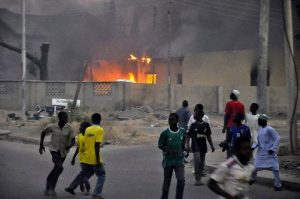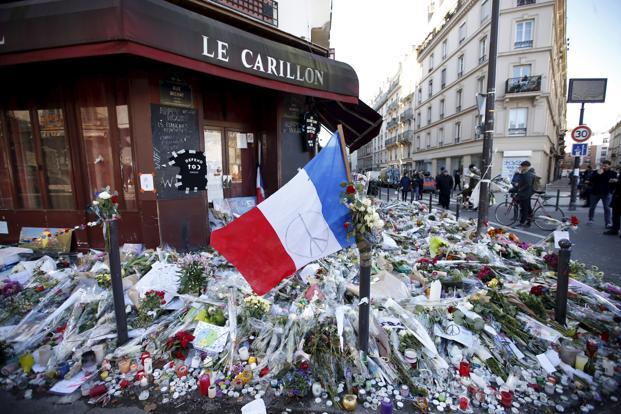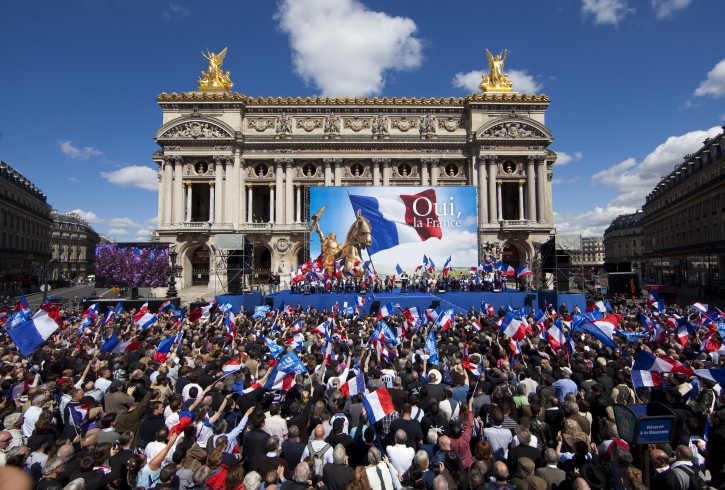The attacks began in the echoes of the Asr, or afternoon, prayers. As the muezzin’s voice faded away, the bombs began to explode, destroying the regional police station and three smaller stations around the city. State authorities declared a 24-hour curfew on the city of Kano, and nine million people huddled inside as gunshots and screams rang out into the morning. Information was conflicting; first, the death tolls were 143, then 162, climbing through the night to a conservative estimate of 185. Targets were civilians and government officials alike. Throughout the night, in the midst of the confusion, two whispered words were on everyone’s lips – Boko Haram.
Boko Haram is a group of Islamic militants in Nigeria responsible for focused and deadly attacks against government and police sites. They have promised to kill Christians living in northern Nigeria, and since 2009, they have been responsible for 935 deaths (and climbing). They support the implementation of Islamic law across Nigeria – a nation of over 160 million people, both Muslim and Christian – and are willing to use violence and murder to achieve their goals.
Boko Haram was founded in 2002 by a charismatic Muslim cleric named Mohammed Yusuf. At the time (and as it still is today), Nigerians were concerned about placing their children in the government-run, Western-style schools, both for religious reasons and because the quality of education was poor. To provide an alternative, Yusuf opened a religious complex in the northeastern city of Maiduguri, complete with both a school and a mosque. Families enrolled their children gladly.
Yusuf began by teaching and preaching, but his anti-establishment message attracted disadvantaged and discouraged young men in the poor Nigerian north. Gradually, the school transformed into a recruiting ground of angsty youths who rode motorcycles and spouted revolutionary, jihadi logic. The group named itself Jama’atu Ahlis Sunna Lidda’awati Wal-Jihad, which translates to “People Committed to the Propagation of the Prophet’s Teachings and Jihad.” However, the group quickly took up a more pronounceable nickname: Boko Haram. In the Hausa language, Boko means “bad,” but has become slang for “Western education,” and haram means “forbidden” or “sacrilege” – so, the group’s nickname means “western education is sacrilege.” They stewed, brooded and insulated for the next seven years.
In 2009, tensions boiled over. Police reprimanded young men in Boko Haram for not wearing helmets while on their motorcycles. Suddenly, police stations and government offices across the region were up in flames. As the offices burned to the ground, Boko Haram members helped to stage a prison break, releasing hundreds of criminals.
The Nigerian government reacted with force. Hundreds of Boko Haram supporters were killed, and thousands fled the cities. Among the dead was Yusuf, whose corpse was shown on television. Rather than being a deterrent, the death of Yusuf gave the group a rallying cry and a martyr. Motivated by vengeance, the group reorganized, attacked a prison in Maiduguri, and freed hundreds of supporters. Boko Haram is still known for their gunmen on motorbikes, riding in style while murdering anyone who disagrees with them: priest, cleric, politician, and policeman alike.
Since then, the violence has only escalated and Boko Haram’s power has grown. They were responsible for bombings of churches on Christmas Day, as well as attacks during President Goodluck Jonathan’s inauguration. Recently, one militant drove his bomb-filled Honda Accord into the United Nation’s headquarters in Abuja (the nation’s capital), destroying the building and killing 25 bystanders.
As the group’s power has grown, it has likewise grown increasingly difficult to classify. It’s no longer simply motivated by animosity towards Christians or the desire to implement a harsh Sharia law; to say so would ignore the complexity of political, religious and societal motivations which now surround it. The group now is factioned between Yusuf’s strict followers, opportunists who use the name of Boko Haram for bank thefts and arms trafficking, and northern politicians, drawing on discontent to help their careers. As the factions become increasingly polarized, the most extreme group has shown itself increasingly ready to make a statement – and to kill.
And their targets may not be limited to Nigerians. Security forces globally are concerned that Boko Haram is a global, not just a local, force. Boko Haram has had significant contact with terrorist groups in North Africa and Somalia, and its increasing use of suicide tactics, jihadi rhetoric and mysterious sources of funding have security forces across the world wondering if Boko Haram and al Qaeda are working together. Abu Qaqa, Boko Haram’s mysterious spokeman who appears in the wake of disaster claiming responsibility and explaining motives, has clearly linked the two groups. On the phone with reporters in November, he said, “We are together with al Qaeda. They are promoting the cause of Islam, just as we are doing. Therefore, they help us in our struggle and we help them, too.”
If the two groups are linked, then the world needs to be concerned. In the aftermath of the Libyan revolution, the region is rife with weapons – and in the aftermath of colonization, Nigeria is disenfranchised, divided and increasingly desperate. With the training and financing of al Qaeda combined with the manpower of a discouraged Nigerian population, Boko Haram is a force to be feared.


